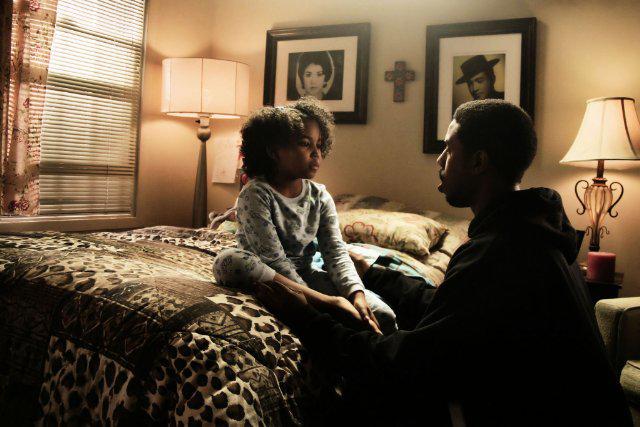Just a little under a year ago, Fruitvale Station—then titled simply, Fruitvale—made waves when it and its young director Ryan Coogler won the Audience Award and Grand Jury Prize at the Sundance Film Festival. The accolades that emerged from the festival were overwhelmingly positive, and unsurprisingly, future awards predictions began to emerge almost instantly.
Oscar talk circled around again at the time of its release in July, this time much more loudly, with many suggesting that stars Michael B. Jordan, Octavia Spencer, and Coogler were serious contenders for nominations. But despite faring well on the awards circuit overall, Fruitvale Station’s buzz peaked early and quietly ran out of steam by the time Oscar season was in full swing. Though the movie appeared on many critics’ top 10 lists, it failed to garner any Golden Globe nominations or Oscar nods.
Terrific movies are overlooked every year, of course. But the snub of Fruitvale is particularly disappointing. Unlike most of the films appearing among the Best Picture nominees, this one speaks directly to the complexities of the here and now: It was just five years ago that Oscar Grant, the subject of Coogler’s moving character study, was shot and killed by a Bay Area Rapid Transit officer, and the film’s release coincided eerily with the acquittal of George Zimmerman in the death of Trayvon Martin.
And its absence is compounded by another snub, albeit a less personally upsetting one: Lee Daniels’ The Butler, which likewise garnered significant praise and Oscar buzz for its star-laden ensemble cast earlier in the year, but was virtually forgotten by November. It’s admittedly a messy movie with a script that veers into cheesiness and a penchant for polar contrasts rather than shades of gray. But the performances are a delight: Oprah Winfrey’s boisterous and assertive performance as the neglected wife of Cecil Gaines (Forest Whitaker, also great) was particularly masterful. Perhaps even more egregious than its lack of acting nominations is the absence of nods for Best Costume or Makeup and Hairstyling: Winfrey’s glorious outfits and Whitaker’s transformation into an elderly Cecil certainly rival American Hustle’s much lauded hairstyles and extensive use of double-sided tape.
What’s more, as Joshua Keating noted here on Slate, The Butler is probably the most Oscar-baity of all the films released last year. “It’s a historical biopic dealing with race relations and starring a past Oscar winner that features ‘family tragedy,’ a ‘domestic servant’ and ‘Watergate.’ ” (Fruitvale had a harder race to run, as “black independent films” are among the IMDb categories that, according to UCLA professors Gabriel Rossman and Oliver Schilke, have not once been rewarded with Oscar wins.)
There are any number of reasons why these films may have failed to garner the Oscar love that was at one time expected. But I can’t help but wonder if the biggest reason is the cultural juggernaut that is 12 Years a Slave—or, more precisely, what that movie means to some of the people who voted for it. That film, an utterly haunting portrayal of slavery, has maintained a hold on the public’s consciousness for months now, as it should. But there appears to be an unspoken quota of how many black films can capture our cultural attention at once. And it seems telling that while Fruitvale and The Butler are Oscar-baity in many ways, neither movie turns its narrative about black history into a heroic moment for white people—like, say, Mississippi Burning, the 22nd-most Oscar-baity movie ever, which was nominated for seven Oscars and took home one.
There’s been much hyperbolic praise heaped on Hollywood after the so-called “banner year” for black films seen over the last 12 months. But the Academy shouldn’t pat itself on the back too much for nominating 12 Years a Slave while ignoring these other films. Steve McQueen could become the first black person to win the Best Director award in the ceremony’s 86-year history, and that would be a well-deserved, historic honor. But, as Mark Harris astutely points out, “2013 may have been, in some ways, ‘the year of the black movie,’ ” but for “the Academy, it turned out to be the year of a black movie.” Harris rightly adds that this “does not mean that the Academy is racist, but it’s certainly a reminder, as if any were needed, that the Academy is white,” and, despite its recent attempts to diversify itself, “still has a long way to go.”
